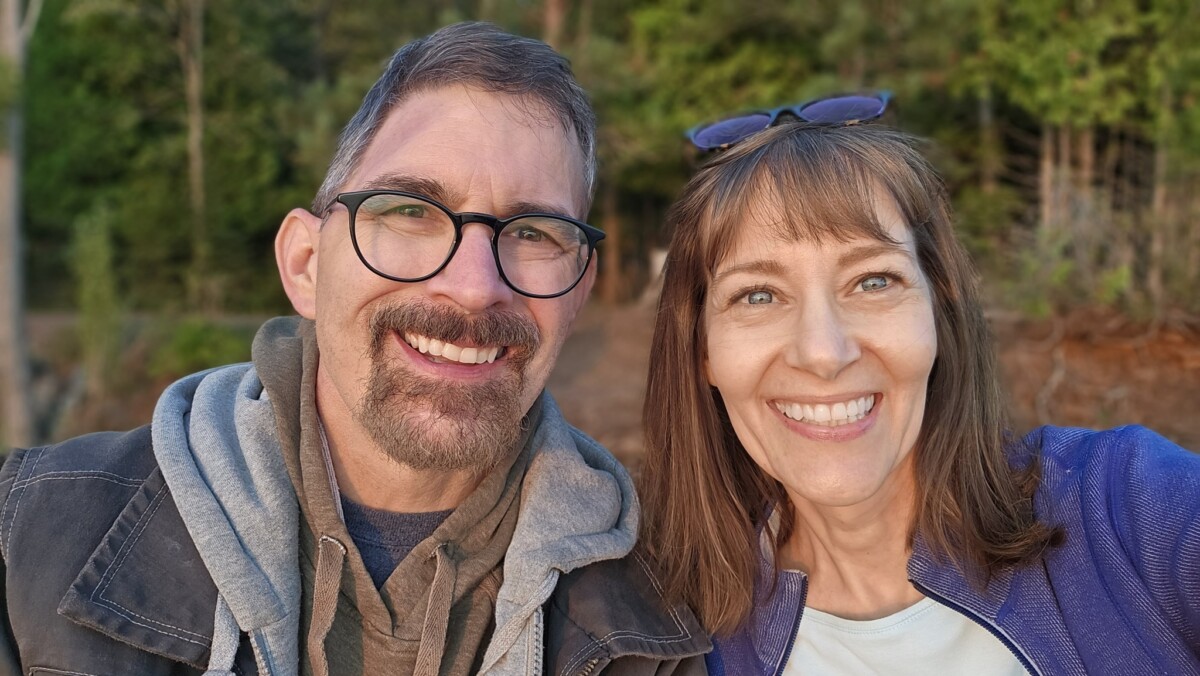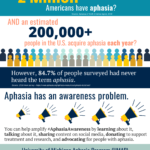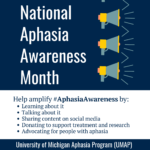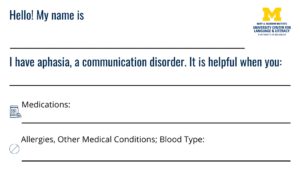Welcome!
Thank you for taking the time to get to know the U-M Aphasia Program better — and what we can do for you and your clients.
We have heard from SLPs who often feel frustrated or overwhelmed with figuring out what to do next with clients with aphasia who have plateaued, who are limited to a few sessions per week because of case load or insurance limits, or who would benefit from or need more frequent and intensive therapy.
Does that sound familiar? Have you found yourself in that scenario? We can help!
Our program is perfect for people with aphasia who may have slowed their progress or who might require a more intensive approach to speech and language therapy for recovery. We offer year-round, intensive in-person sessions at our Michigan office, as well as teletherapy (in states where we are licensed).
Learn More: Scroll below to see program components, client outcomes, and more.
Ready to make a client referral to UMAP? Click here to go to the referral and contact page.
Free Resources
Aphasia Awareness Resources:
- Posters
- Three options available to help spread awareness about aphasia. Two are specific to June, which is National Aphasia Awareness Month.
- Click on each image to view and download.
- Aphasia ID Card.
U-M Aphasia Program Resources:
“Attending UMAP was a revelation,” said Bruce. “Working with the UMAP team was very special to me. Every hour I was given new challenges. Every day. The therapists, SLPs, and the administration… each of them enhanced my learning with their efforts. I loved it.”Bruce Farrell
Bruce attended our program in 2020 after experiencing a traumatic brain injury.
You can read more of his story online at Singing Again After Aphasia | Bruce’s Story.

U-M Aphasia Program Components and Outcomes
But how do we know it works? Is it worth the money? How do you know if you should recommend the U-M Aphasia Program to a client or caregiver?
Want to Learn More About Aphasia in General or UMAP Specifically?
We would love to answer your questions or provide more information! We are also happy to provide in-service workshops or presentations about aphasia or the intensive approach to treatment.
Please call us at (734) 764-8440 or fill out our online contact form to get the conversation started.




